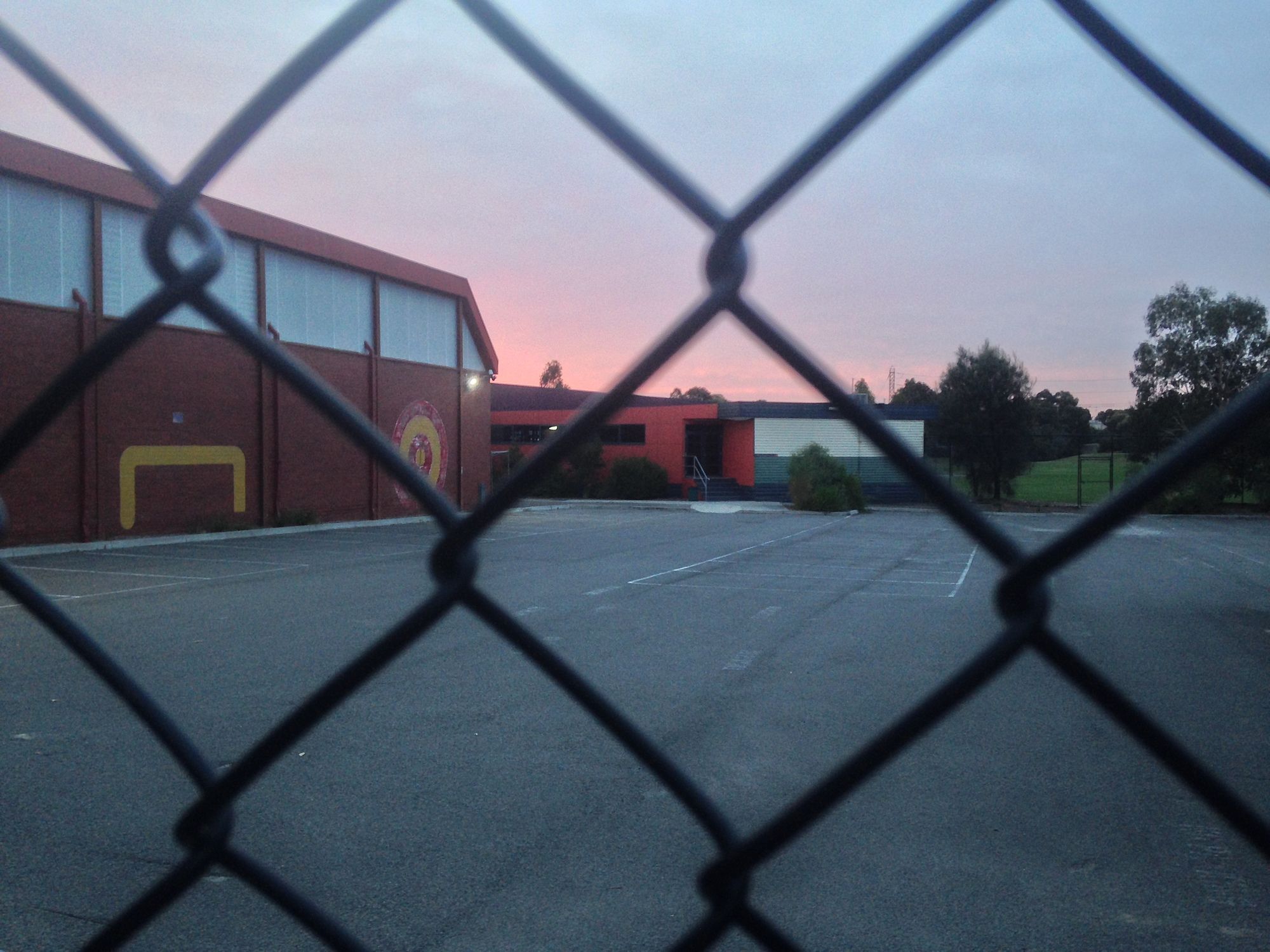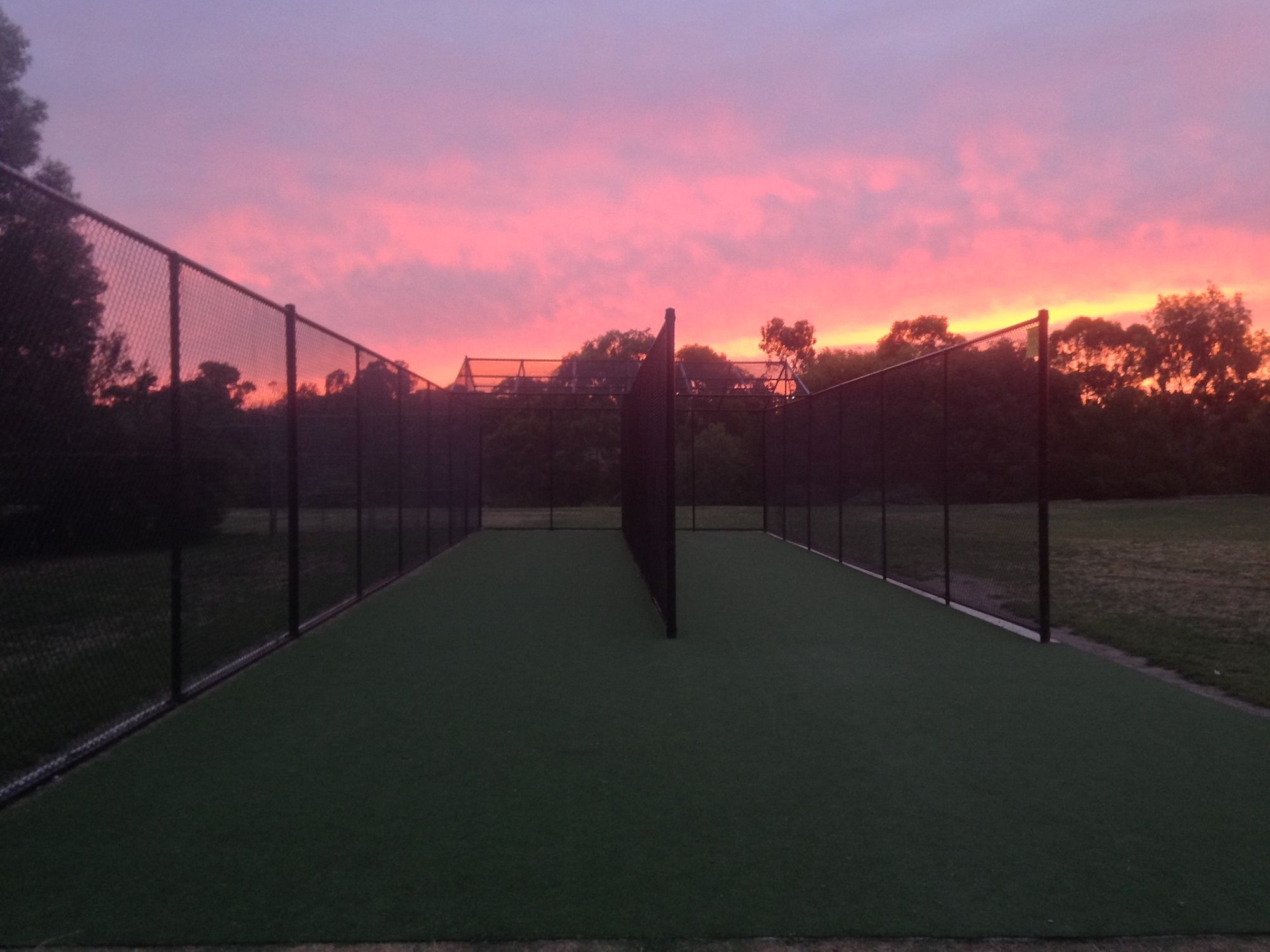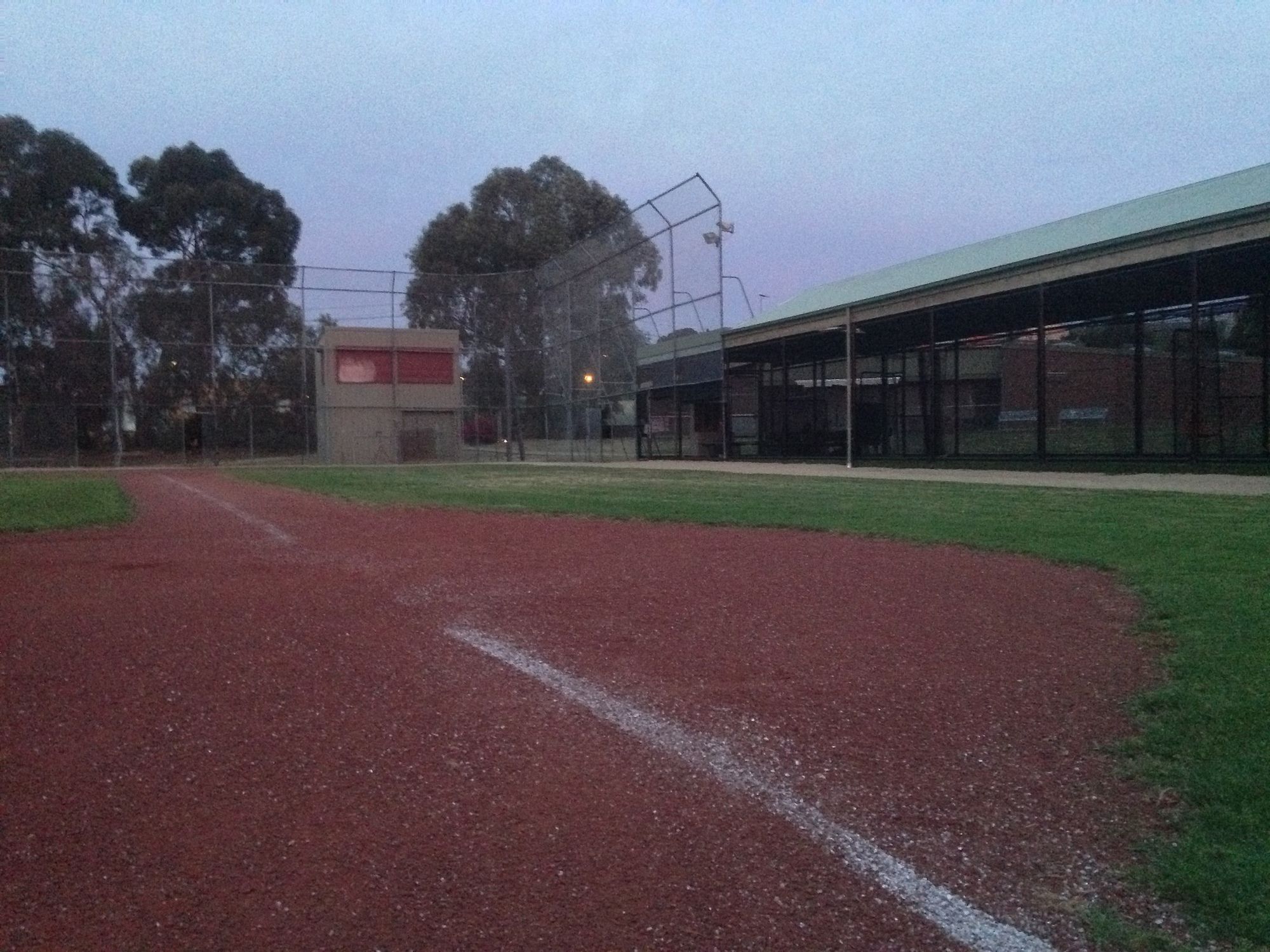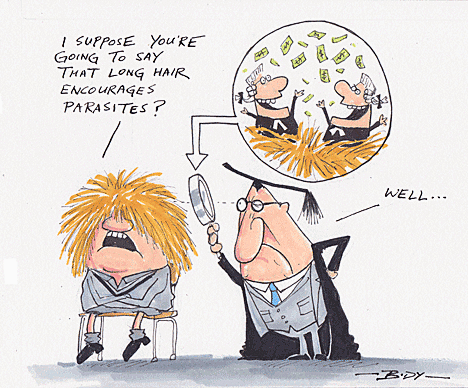Three Boys
Joe Nunweek on school expulsions
Approximately six in every thousand NZ kids are excluded or expelled from school each year. What seem like low numbers conceal a world of hurt, snap decisions, double standards and cruel long-lasting consequences.
Here's what happened to three boys, including one that got away with it.
Boy A wasn’t even there when the deal went south. His friend Jayesh (more of an acquaintance, really) turned up at school with a foil ball of yellowing and stalky cannabis one morning. Jayesh exchanged part of it for $60 behind the windowless back of H Block with another kid, clandestine clouds of breath in the June air. The other kid wasn’t as smart. ‘I can get you all weed now, anytime,’ he explained in a stage whisper to the kids in his row at second period. ‘Jayesh is my supplier.’
The legend of the dealer acquaintance and his tactless would-be subcontractor travelled fast through Year 13. By the end of the day, both he and Jayesh were caught red-handed, and the school fell into an enveloping reefer panic.
Bringing drugs to school is, and always has been, curtains. Students who get caught face near-certain suspension, then exclusion or expulsion. For students over the age of sixteen, it means they won’t be coming back, most likely won’t be able to attend conventional secondary education anywhere.
The school didn’t stop there. They questioned the circle of friends, anyone who had seen a telltale glint of foil that day. They were all interviewed and told they needed to come forward with the names of any boy who was smoking dope at the weekend, at home – wherever.
Boy A’s name was mentioned a number of times on the scrawled confess-all statements. And Boy A had inadvertently incriminated himself, though he didn’t know it. For the past several months, he’d been seeing a school guidance counsellor for depression. In the sessions, he openly described having the same recreational alcohol and drug habits of virtually every eighteen-year-old boy in the country. The investigating vice-principal availed himself of the records, citing critical school safety reasons. He had his smoking gun.
Boy A was suspended immediately for a nebulous form of gross misconduct. He had done drugs, but he didn’t do them at school, but he had done drugs with the boys who did do drugs at school. Plus, it was on the record.
Suspensions have to go before a disciplinary subcommittee of a school’s Board of Trustees. Its members can choose between the school management’s recommendation (generally, to exclude or expel the student), or they can reach an understanding that the kid comes back on certain conditions.
The student and their family are invited to attend the meetings and explain themselves. The meetings are not fun for anyone. School principals and vice-principals are asked how they can sleep at night. Board members with no legal background have to hold a student’s future and the school’s needs in their hands and hope they get the balance right.
Boy A’s parents didn’t have fun, either. Questioned on what they knew of his drug use, they spoke openly and honestly about how they let Boy A’s friends gather at theirs and drink in the garage sometimes, because it was better to have a bunch of seventeen-year-olds wake up with blinding hangovers on a pool table than have them wander the streets at night or worse, climb into their Mitsubishi Mirages. Of course they snuck down to the garden for a toke, probably.
The parents were raked over the coals for it by the board and vice-principal alike. Did they know what they were doing was criminal? Did they want to explain that to the parents of the other young men? Then, the clincher: ‘I can see where some of these attitudes to drugs and alcohol might be coming from.’ Boy A’s mother was set to leap over the table and hit someone, or walk out, or anything to stop the horrible mission drift of the investigation. Just who was on trial here? And what was it they’d done that broke the school’s rules?
Amid the shouting match, Boy A’s lay advocate, a recent law grad who had accompanied the family, eventually stammered out a few words about natural justice – pointing out that the parents’ decisions weren’t a relevant consideration, that the only reason anyone was in the room was that Boy A had chosen to be honest with an adult in the first place, and that if you wanted to make your school counselling service next to useless, the best message you could send to the students would be: ‘We reserve the right to later use anything you say in confidence now against you later on.’ This sounded more clumsy at the time than it does here – I know this, because the advocate was me.
Somewhere in the stammer, the message got through. Boy A, who had two terms of school left, who just needed to eke out enough credits to have a halfway decent choice of tech courses, would be allowed to return. He agreed to submit to a strict written behaviour agreement with the school, including random drug tests. If this still seems harsh rather than unlucky – if you know anything about teenage boys, peer pressure, how long THC stays in the system – then there’s something else to know. In this system, you take what you can get.
Boy A was over 16, so if he had been expelled from school, no one else would have had to take him. If you disagree with the school board’s decision, you can complain to the Education Review Office, but they don’t intervene lightly, and can’t actually take any action to fix the situation beyond a report to the Minister. Or you can go to New Zealand’s nationwide Ombudsman, inundated from everything from Canterbury earthquake disputes to complaints about the withholding of free and publicly available datasets. If and when they get through their year-plus backlog, their powers are limited to a non-binding recommendation that schools don’t have to follow.
Those are the free options. Boy A’s parents – lots of parents – say they’ll go to court if they need to. And they can, but a judicial review in the High Court of New Zealand costs between $25,000 and $30,000. It takes months if not years to go through the motions. At the end, with no guarantee of success, the student has still been out of school the whole time.
Lost time is not a currency that you can easily estimate and compensate, though no small amount of legal arithmetic goes into trying to do so. But as it passes by, it costs you dearly. If you miss a year of school at sixteen, you’re paying it back at 26 – at 36 – beyond.
So if you think the school will drop its allegations, pop you straight back into class the next day, generally fall over to appease you because of what would be a gross invasion of an adult’s privacy, the shoe’s on the other foot. The shoe is always on the other foot. A boy like you doesn’t have parents that have a spare $25,000 lying around. And you don’t have a spare two years.
Boy B didn’t spend nearly a month in daily humiliation and bed-pissing terror just to get himself in trouble the first time he fought back. A classmate at the start of his fourth form year took an instant dislike to him, his weak, tense amicability, the way he couldn’t throw a cricket ball. Boy B’s bully was a head taller and could get him square in the nuts with a footy ball with an expertly placed kick, 20 metres out.
Usually he didn’t bother with a show of skill when a swingeing whack in the back of the head with a maths textbook would do, or the pinprick agony of a compass in his shoulder, waiting for him to lean back. It was erratic – two, maybe three days at a time without. Somehow, that made it worse.
One afternoon at the start of maths, the bigger kid picked up a plastic chair. In a fluid arc worthy of WWE SmackDown, he brought it crashing down on Boy B’s head. And in front of a class of thirty, Boy B spun around, pale limbs akimbo, and dealt the bigger kid one across the face.
It was a nasty hit for no training and no co-ordination. The bigger kid reeled with a bloody nose, a purple eye, a narrow gash from a wayward thumb. And then Boy B and his tormentor realised the teacher was about to come in, and they spontaneously did what they thought was a very clever thing to prevent things getting a lot worse for both of them. They marched to the school nurse and formulated a story on the five-minute walk. Boy B had been standing on a chair to change a light for Mr Stanton; it was stuck in the fitting and when it came loose with a jolt, he’d inadvertently elbowed his friend and classmate in the face. What do you expect when you get the most uncoordinated boy in the fourth form to carry out a menial task?
This seemed even more clumsy at the time then it does here. I know this, because Boy B was me.
My school had, and still has, a zero-tolerance approach to violence. Physical assault on another student falls under the category of ‘gross misconduct’ that can cop an immediate suspension, but neither I nor the other kid ended up excluded, let alone in front of a board. Perhaps there was some flicker of leniency because of the bullying aspect of it, or a weird ‘law of the jungle’ reluctance to intervene. They’d violently made their peace; let well enough alone.
More likely is the fact that we were each high-achieving students in the top stream for our year, with respectable extracurricular involvement. We were also both (mostly) white.
As of 2013, New Zealand schools booted out around 3.7 times more boys than they do girls. That’s predictable – the ethnic breakdown even more so. If you’re Māori or Pasifika, you’re between 30 and 60 per cent more likely to get expelled than your Pākehā counterparts. You find yourself in trouble more often at school until they kick you out.It’s the beginning of a long and exceedingly expensive trail of over-representation.
Then you’re at home, or somewhere, with no education and nothing to do, and you’re finding yourself in trouble more often everywhere else. A 2001 UK study of 263 excluded young people found that 117 had no recorded offences prior to expulsion but offended later. Conversely, only 14 had offended before being expelled and stayed clean afterward. So we know that getting kicked out of school doesn’t serve as some short and sharp wake-up call, putting young adults on the straight and narrow.
And whether or not crime is a factor, there’s an immediate effect on a student’s life chances when they’re removed from the secondary system. Our WINZ offices swell with the ranks of the expelled - many of whom won’t have attained a formal school qualification, more of whom won’t do anything after school.
The 2001 UK study painted the following picture:
“Permanent exclusion tended to trigger a complex chain of events which served to loosen the young person’s affiliation and commitment to a conventional way of life. This important transition was characterised by…the loss of time structures, a re-casting of identity, a changed relationship with parents and siblings, the erosion of contact with pro-social peers and adults, a closer association with similarly situated young people and heightened vulnerability to police surveillance.”
If we know a lot about what happens after a school expulsion, we don’t know a great deal about how students have performed beforehand. Most students who get kicked out of school, I suspect, are neither troubled yet brilliant loners – blowing up the science lab or performing an elaborate prank on the teachers – nor would-be school shooters who needs to be taken out of the system to protect themselves and others.
They’re average-to-poor students and average-to-poor athletes with little extracurricular value to their college. And if there’s no implicit assumption that they’re a lost cause, there’s certainly isn’t the counter-impetus to try and remain responsible for their management and welfare that might apply if they were a lot smarter, faster or stronger.
And assuming for a moment that you endorse zero-tolerance rules for otherwise tolerant schools, that you think that everyone who breaks the rules should be punished equally, there’s a compounding unfairness to this. Because bright kids are usually better at breaking the rules and not getting caught.
Which is to say: we smoke our weed and sink our piss circumspectly, and we bully others to the brink of abject, desperate misery without leaving a trace you’ll ever be able to find. When we’re bored, and we’re always bored, we’ll egg on one of the less fortunate kids – the ones without self-control, who perform for attention, who are too impulsive for their own good – until they do something stupid and funny. And then we watch the fireworks from a safe distance.
If you’re an educator, this is what at least some of your little stars do virtually every day of the week. You could redress the balance by redesigning school and everything around it, the internet included, as a sort of panopticon for teens. Chances are, you’d rather try and figure out something that doesn’t involve monitoring them all, and that doesn’t let those at the bottom of the heap cop the consequences.
Boy C was at a Wellington co-educational school, and sixteen, and lonely. Diagnosed with a double-whammy of ADHD and Asperger’s, his record wasn’t fantastic. It ran to several pages of late arrivals to class, getting out of his chair and wandering when he’d been told not to, of petty and poorly concealed thefts, of pulling hair or punching in the back when ignored or upset. He was too small for his age to do much harm, and honest to a fault when caught red-handed. And he was always caught, and so his list grew.
The school holidays after he turned sixteen were spent the way he usually spent them – under a sporadically adjusted sea of medication, feeling as though he didn’t have a friend in the world. His parents relaxed the tough rules on devices and screen time they set to try and get him to focus on his homework during term time. He’d go on Facebook, live vicariously through the statuses and photos of classmates who never gave him the time of day during term. Then on the last day of holiday, he was added to a group chat. A bunch of guys and girls, and they were talking about sex.
They asked him if he’d ever done it.
‘yes’
They didn’t believe him, the jokes and the ‘fuck offs’ streaming into a blur. Who with? He had a flash of inspiration – and before his better judgement caught up, he’d typed in the name of his history teacher.
Suddenly, they were all interested, egging him on, asking for more details about when, the positions, what it was like. It felt good, typing, them laughing, wanting more. And then the next day they all showed Ms Shelton the history teacher the Facebook conversation and he was suspended.
At the Board of Trustees meeting, Boy C’s parents were told he was facing expulsion for continual disobedience. The Ms Shelton affair had been the last straw – she would no longer have him in his class. For his parents, it was just another setback. They had both sacrificed pay and regular working hours to be at home with him as much as possible. They had worked with the school constantly and co-operatively.
For its part, the school had dug into its entitlements from the government for a while (New Zealand schools receive a Special Education Grant of non-individualised funding, which they can choose how to spend; individual students, with their parents’ help, can apply for the Ongoing Resourcing Scheme, which secures things like teacher aides and help from specialists). But after the teacher aide who worked best with Boy C had to move on at the end of the previous school year, the funding lapsed.
Asked about what had happened to it at the meeting, both the vice-principal and board deflected. They were responsible for over a thousand students, and the funding was very limited. Not everything could be devoted to being one boy’s keeper.
Towards the end, Boy C asked to read a statement he had prepared. It was probably the longest and most controlled speech he’d ever given, even as he trembled and focused on his handwritten refill. He was sorry for everything he’d done. He’d never had a girlfriend, or a friend, and he just wanted to keep being talked to and keep being included. He said he could try to explain how as the medication wore off he stopped thinking of consequences and just acted on impulse, but that he knew it wasn’t an excuse. He said he just wanted to stay, that he would even do some days at home to avoid trouble. He wanted to finish NCEA Level 1 and then find a course somewhere. He just wanted one last chance.
The board took four minutes to decide that Boy C would be expelled. When they did, he hid his face behind his sheet so they wouldn’t see him burst into tears.
If Boy C’s family had taken it further and sought a judicial review of the decision, there’s a possibility the board’s decision may have been overruled. In February, the High Court did the same for a student at Auckland’s Green Bay High. His exclusion was found to be illegal, and there was a failure to take into account his special recommendations or the opinion of a child psychologist before making the decision. But it’s tens of thousands of dollars to get to that point. For someone with special educational needs, it can be a marginalising, deeply isolating thing – it was if his last link with the normal warp and weft of daily life had suddenly been severed.
A sudden media focus on court reviews of BOT decisions earlier this year attracted the usual voices, some of them positively fascistic. Rent-a-quote parenting expert Nigel Latta gravely intoned that parents who invoked a civil right and brought lawyers into a Board of Trustees matter were ‘wrong’. More usefully, law professor Bill Hodge pointed out that the community volunteers who act as administrators shouldn’t have to go to bed wondering if they’ll end up on the wrong side of a High Court judgment. The answer, as ever, is access.
Youthlaw’s 2012 report Out of School, Out of Mind found that England, South Africa and certain provinces of Canada have an administrative structure in place for school exclusions to go to an independent appeal panel.[1] As a regime, it’s faster and less costly for both school and family. It also hasn’t had a floodgate effect – only a quarter of all appealed cases found in favour of the pupil. Even on those stats, more New Zealand students would be getting wrongful decisions overturned under such a system than are right now.
This sort of access isn’t just about a vindicating day in court for protective mothers or fathers. The lower stakes could mean schools waste less time defending poor decisions than explaining their own poor circumstances. For its own part, without wearing the hat of school administrators, a panel could decide a matter on natural justice and not resource constraints.
In doing so, they’d send an implied message to the Ministry of Education: you’re letting your schools down, and the effect is that they let their neediest down. It’s no more activist than the tenor of certain recent High Court decisions, but it creates an affordable, fair middle ground between that forum and the stale biscuits and Bushells of a staffroom on a Wednesday night.
These kids are not political priorities, though their potential future cost suggests they should be. A similar panel in New Zealand is probably years down the track – and even if that’s the case, the best schools and boards are already realising that youth misconduct and discipline are dynamic. Offenders and victims trade places on a dime, the worst behaviour is a symptom and not a disease, parents need empowering, and psychologists, social workers – even lawyers – have a part in facilitating a fair outcome. I’ve seen them do so, and they do it against fearful financial odds.
Some of the students that get in deep trouble this year will be enrolled at those schools, and will face those boards, and they’ll be the lucky ones. But the expulsion process from school in New Zealand isn’t always fair, and a lot of the time it can be final. Sometimes you squeak through, or sometimes you’re too smart and too rich to have to squeak through in the first place. And sometimes you won’t even be in with a chance. Sometimes never.
Certain details, including locations and names where used, have been changed to protect former students, their families, and those school staff and boards who do what they can in a bad system.




